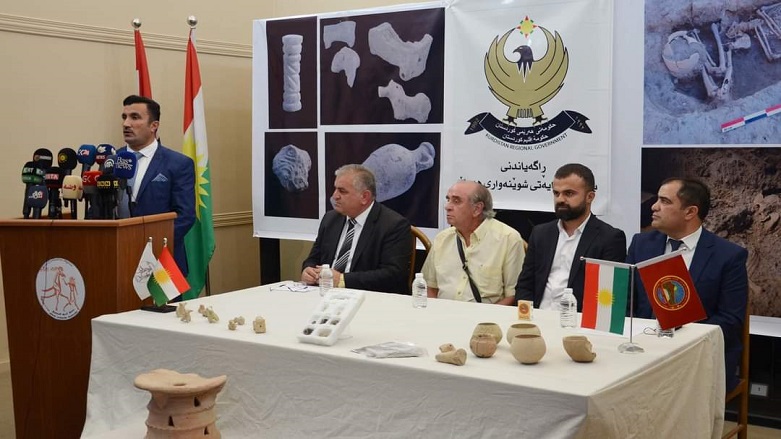PHOTOS: Clay artifacts found at Erbil archaeological site with items dating back nearly 4,000 BC
Work at archaeological sites in the Kurdistan Region had slowed during the COVID-19 pandemic, but experts have been able to resume some activities as vaccination rates have ramped up and travel restrictions eased.

ERBIL (Kurdistan 24) – Archaeological teams operating in Kurdistan Region's Erbil province have discovered clay artifacts at a site where items that are about 4,000 years old BC have been found, a senior official said Tuesday.
"For nearly two years, foreign excavation teams have not been able to come to the Kurdistan Region," Director-General of Erbil Antiquities Nader Bakir said during a press conference in the capital.
"This year, however, several teams, including a Spanish one and an American one, arrived in the region to resume excavations," he explained, adding that more experts are expected to visit Kurdistan to work on related projects.

A group made up of experts from Barcelona University and Erbil's antiquities directorate conducted excavations at the "Grda Lashkr" site, Bakr told reporters, noting further, "we are thrilled with the results of the sixth phase of the excavation in that area."
The director asserted that experts have dated items from the Grda Lashkr site to as far back as the early Uruk period, which began around the middle of the fourth millennium BC, nearly 6,000 years ago.




